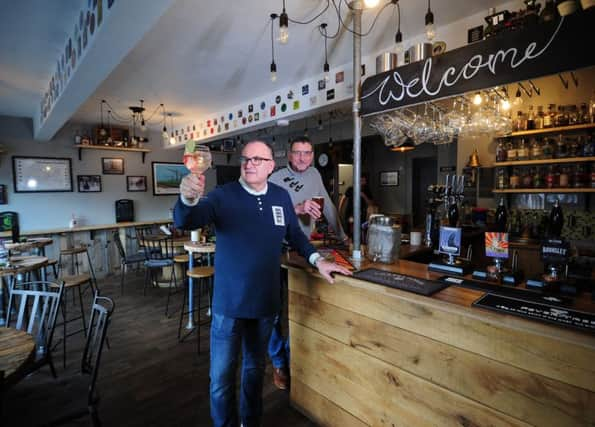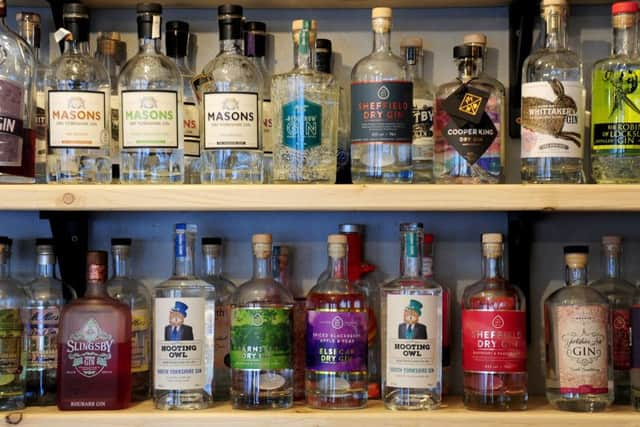Why Sheffield has become the micropub capital of the UK


However, in the years since that report, not only have more new breweries opened but a wealth of new and increasingly eclectic places to drink beer in have opened too. To match the rise in small-scale independent brewing, the city is seeing a new range of micropubs and tap rooms alongside them. Living room-sized boozers have been popping up all over the city with regularity and are now also spreading further and further out. On top of this, breweries are now opening spaces in their brewing works and turning them into mini-pubs as tap rooms, and there’s also the rise in specialist bottle shops that throw in a bench and a few chairs to create a sort of shop pub hybrid.
“There’s a rise in the area for sure,” says James Eardley of The Brew Foundation, who also has the Ecclesall Road micropub The Ale Club. “The more micropubs there are, the more people come to the area.” The Ale Club is one of four micropubs just on Ecclesall Road that have opened in recent years, alongside the Beer House, Portland House and a micro sports bar. As someone who also runs his own brewery it’s ideal not only for selling his own beers but it provides a home to sell his too. “A lot of the microbreweries and pubs will do a swap with them,” he says. “It’s a really great way to get the beers out there.”
Advertisement
Hide AdAdvertisement
Hide AdWhile more central areas have seen such places pop up, things are now beginning to spread further out of the city centre. Tucked under the railway arches in Chapeltown is the Chapeltown Tap House and Gin Bar, a cosy micropub that has only been open since late last year but already been a huge success with the locals. “I think people want something a bit different these days,” says co-owner Richard Colton. Along with Darrell Johnson they were inspired by their friend opening the Guzzle, a micropub in Woodseats.


Spurred on by the relative ease, low overheads, and realisation they could take on their own pub while also keeping their full-time jobs they took on the site. “If there’s one phrase that sums up this place, it’s: ‘Made in Yorkshire’”, says Johnson as he points to a bar stocked full of local beers and spirits. “The choice of local products is really wonderful, we’re spoilt for choice.”
Another out of town venture is the recently opened St Mars of the Desert, a brewery and tap room in Attercliffe opened by new arrivals to the city Dann and Martha Paquette. The husband and wife duo ran the brewing company the Pretty Things Beer & Ale Project in Boston, in the US, but decided to move to Europe and open up their own brewery.
While Attercliffe remains an “undiscovered” part of the city the pair see the potential and like their new home. “Sheffield had beer history and a lot of empty industrial buildings without being a decrepit city. Which is what you look for and is very rare,” says Dann. “We wanted to build a perfect small brewery, that was our ideal.” On a winter’s day there’s a fire roaring in the tap room, a vinyl turntable plays music and it’s a very homely atmosphere.
Advertisement
Hide AdAdvertisement
Hide Ad“It reminds us of places in Brooklyn or the Bronx,” Dann says. “We’re not getting in anyone’s way here. This is the right kind of space at the right kind of price.”
Having been involved in the US craft beer boom, the pair have also seen how popular tap rooms can be. “This is a classic American set-up,” says Martha. “It’s always been in our heads to do that. It’s a brilliant experience that brings it all together and lets you see the brewery and taste the beer steps away from where it’s made.”
Another brewery taking advantage of selling their beer directly and using their space as a tap room is the Sheffield Brewery Company. Whilst they have been making beer in the city since 2006, they have recently opened up their brewing site once a month to coincide with Peddler, a local street food market. On the first weekend of each month, they bring in street food and live music and people are welcomed into the brewery where they have installed a bar and an area that resembles a traditional pub.
It’s proven hugely successful and founder Peter Rawlinson is considering opening in line with more traditional pub opening hours. “People enjoy being gathered around with others in a space with music going on and food,” he says. “Going back centuries, it’s like a street party. Everybody is coming together.” As for the rise in micropubs and tap rooms opening in the city, he says, “the more the merrier. The rates tend to be reduced on smaller places so they can be run by a handful of people. You don’t have to open the same hours as you traditionally would. It’s very flexible.”
Advertisement
Hide AdAdvertisement
Hide AdThis flexibility even extends to the brewing process for someone like Eardley, who does cuckoo brewing (using other site’s breweries on their non-brewing days). “A lot of people have opened up breweries with loads of expensive gear and customers aren’t banging down your door to buy your beer, it takes time to build a customer base. So cuckoo brewing removes the pressure of rent and overheads.”
While many larger pubs tied to breweries are struggling and closing, it seems that those working on a much smaller scale are thriving. If there’s one Sheffield tap room that has been a benchmark of success in the city then it’s the Sheffield Tap, located at the railway station. “A lot has changed in the last decade,” says co-owner Jamie Hawksworth, recalling that they struggled to even bring in Czech lager to the UK back then as the brewery didn’t think UK drinkers were ready for it. Co-owner Jon Holdsworth suggests that what’s seen them prosper is “quality and consistency”.
“We’ve experimented,” says Hawksworth. “We’ve gone through the phase of the American hoppy beers and the crazy styles, we’ve got it out of our system now. We just want good beer. A lot of modern brewers are trying to give people what’s next or trying to think what it might be. What’s next is contained within the whole portfolio of the beers we have always stocked.”
And as for the rise in similar places following in their tracks, Holdsworth says that the most successful ones often take the less is more approach.
Advertisement
Hide AdAdvertisement
Hide Ad“Smaller places that can offer something unique without overheads and play to their strengths. You don’t have to be a master of every facet of every craft. Let people go elsewhere for other things and just concentrate on what you’re good at. For instance we’ve never done food...
“Microbreweries and pubs tend to have an element of character that makes them more interesting. People have been around a lot in the beer world this last ten years, they have experimented and are more discerning and they want to come back to somewhere that knows what they are doing.”